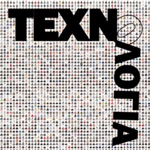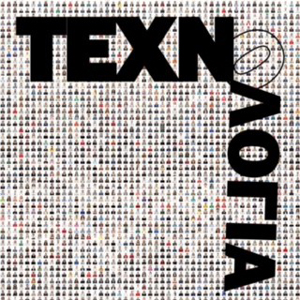13th Beyond Humanism Conference (BHC): CRISES AND THE POSTHUMAN, Μυτιλήνη [3-7/7, 2023]
 13th Beyond Humanism Conference (BHC)
13th Beyond Humanism Conference (BHC)
+ 2nd Metahuman Futures Forum (MFF) (section/associated event – link to topics below)
BODYNET-KHORÓS FORUM 3 & LAB 5
Part of the Bodynet-Khorós EU project
University of the Aegean – Mytilini – Lesvos – Greece
3 – 7 July 2023 [Monday to Friday]
CRISES AND THE POSTHUMAN:
Post- Trans- and Metahumanist Reflections on Contemporary Challenges
Organising Committee: Evi Sampanikou, Stefan Lorenz Sorgner, Jan Stasienko, Jaime Del Val, Jelena Guga, Sangkyu Shin.
Advisory Board: Francesca Ferrando, Çağdaş Dedeoğlu, Vagelio Kavakli, Jae-Hee Kim, Anna Markopoulou, Oscar Quejido, Mariano Rodríguez, Debika Saha, Thomas Steinbuch, Helena Theodoropoulou, Yunus Tunçel.
Conference Secretariat Administration: Nikoleta Gourgouli, Vivi Zagoyianni
Graphic Design: Elisavet Kelidou
Artistic Events Administration: Maria Asimakopoulou, Ipek Kuran
The Topic:
Two years after the outbreak of the pandemic and the distance or hybridity it forced our lives into, the 13th Beyond Humanism Conference is taking place as a live event, returning to one of the crucial places for the development of the several Posthuman routes of thinking, the University of the Aegean, Mytilini, Greece. It was there where in the 2nd BHC in 2010 the Metahuman Manifesto was for the first time presented and an emphasis to the Audiovisual was given. It was also there in the 6th BHC in 2014 where the emphasis to the Political was underlined. It’s now, after the pandemic and the two online forums (2020 and 2021) plus the hybrid form 1st Methuman Futures Forum in September – October 2022, that we turn to a new, hybrid, but with an emphasis to the live presentations event underlining the need for new reflections and new ideas on the Posthuman.
In the context of the post-pandemic era that has risen, new challenges appear:
- The challenge of the local vs the global: the glocal, loglobal and other related term proposals.
- New concepts and fiedls of study with a critical content like Trash-human Unhancement (coined by Jaime del Val) as the reality underlying Transhuman Enhancement (Del Val 2022). (See the MFF parallel CFP on this).
- Reflections on the topic “Critical Posthumanism and Transhumanism: Antagonism or convergence?”, and the Metahumanist alternative. (See the MFF parallel CFP on this).
- The new meaning of Wellbeing: Wellbeing in contemporary society refers only to the health of the body and its importance was shrunken to a highly materialistic conception associated with consumerism patterns vs Wellbeing in ancient Greek philosophy (Plato, Aristotle, Epictetus). This philosophical Wellbeing offers a new meaning, entirely different and much broader than“a way of living” derived from and connected with a philosophy of existence via a non-anthropocentric notion of “Care of Self”, which is based to “going beyond the self” or at least to an exercise by which the self is situated in the cosmic totality and experiences itself as part of this cosmic totality (Hadot, P.(2022).Philosophy as a Way of Life.Ed. Wiley-Blackwell).
- The new dimensions of suffering and the new abilities for its restriction, the new meaning of healing (Panacea [Therapy/Medicine]-Health [Health/Politics]: emphasis on the political dimension of Health, which has been “repelled” by modern societies, since the perception of a “normative” approach to health dominates. Under the same point of view, distinction between illness-disease.
- The contemporary dimension of disability, transhuman enhancement and the problem of medicalization of disability, non-human disabilities (disability of animals and plants), persons with disabilities and otherness, posthuman vulnerability and inclusiveness, social definition of disability and relational self, body with disabilities as bio-technological assemblage.
- The development of a new ecological consciousness and the need for reciprocity among species and the natural environment: A new ecological consciousness through the concept of “symbiosis” in the context of a non-anthropocentric perspective, meaning a mutual cooperation between organisms, is very important and “the fittest is the one who helps someone else to survive. Contrast between “symbiotic” and “conflictual” concepts of nature, according to which “the fittest survives the struggle for existence» (Biehl J. (ed.). (1999). The Murray Bookchin Reader, Black Rose Books). Ethics of space: beyond geocentric ethical theories.
- Hybridity and “Agentivity” (or Agency). Autonomous algorithms, AI and Big Data from critical perspectives.
- Sustainability of academic research: Emphasis on the re-evaluation of academic philosophical, scientific, literature and artistic research from the point of view of Critical Posthumanism in such topics as:
- Re-evaluating the contribution of pre-modern and modern: Spinoza and Bergson, Heidegger,Russell and Habermas, Benjamin.
- Re-evaluating the relevance of postmodern thinking for Posthuman debates, e.g. Lyotard, Wittgenstein, Deleuze [and Guattari], Baudrillard,Virilio,Flusser, Foucault, Danto, e.t.c..
- Re-evaluating Marxist approaches for posthuman challenges, e.g. Gramsci, Adorno, Althusser, Horkheimer, Lukacs, Jameson and Harvey.
- Re-evaluating Phenomenological thought: Husserl, Merleau-Ponty.
- Re-evaluating epistemological questions of natural sciences: Jean Cavallies, Gaston Bachelard, Canguilhem, Kuhn.
- Re-evaluating the history of the beyond humanism movements, e.g. Darwin, Nietzsche, Russian Cosmism, Freud, Julian Huxley.
- Re-evaluating science: The contribution of mathematics and artificial intelligence research and the vast possibilities opened by the writings of Marvin Minsky, Joseph Weizenbaum, Hans Moravec.
- Re-evaluating the arts and literature in the context of posthuman insights, e.g. contemporary art, science fiction, horror literature, bioart, digital arts, and the posthuman.
- Re-evaluating posthuman pop cultures, e.g. cinema, documentary, comics, TV and platform series,e.t.c.
- Re-evaluating posthuman performance arts, e.g. dance, theatre, performances, metaformances.
- Rethinking the notion of Inclusiveness.
- Alternative forms of embodied thinking and thinking as movement, and practices to mobilize it. (See the MFF parallel CFP on this).
- Intercultural Understanding and the new Opening to Non-Western Cultures. Emphasis on non-western cultures, philosophies and religions (African culture, Buddhism).
- The end of Eurocentrism and Angloamerican dominion and the turn to other continents: Asia, Africa, Central and South America, Australia, the Pacific, the Arctic: Inuits.
- Protest, Politics, Violence and War in the new reality.
- The Human as a menace and virus to the planet and other species. (See the MFF parallel CFP on this).
- Challenging the notion of Human Consciousness and its relation to the cognitive non-conscious, the material unconscious, or the subconscious. Biological Conscience and the notion of the Care of Self: This point could be developed through two approaches: A phenomenological approach of the Care of Self, which is an attempt to relearn how to see the world and to conquer a universal and cosmic vision, because of which we will be able to enter the position of the other and overcome individual detachment (Merleau-Ponty, 2002. Phenomenology of Perception, Routledge Classics, London and New York). Body Intelligence, proprioception and movement philosophy as proposed by Jaime del Val are central to this question.
- Mutual aid and evolution (see also the MFF parallel CFP on this): In the light of a sociological approach the notion of“Mutual aid” developed by Piotr Kropotkin, which means “the biological principle of unity, precedes and determines all subsequent stages of group organization on the basis of the triptych: Mutual aid-Justice-Ethics. This triptych highlights the successive stages of an ascending sequence revealed to us by the study of the animal world and man. It constitutes an “organic necessity” such as is attested by the totality of the evolution of the animal kingdom, from its earliest stages (in the form of colonies of the most primitive organisms) to gradually our civilized human communities. Figuratively speaking, it is a “universal law of organic evolution” and therefore this triptych is rooted in man by the force of an instinct”. Quoted by Herbert Read, (1971) Anarchy and Order: Essays in Politics, Boston, Beacon Press, p. 97).
- Power and Technology, AI, Science and the new Bioethics, ethics and politics of strong, weak and hybrid AI, algoricene as post-Anthropocene, race and gender studies and AI, automation and inequalities, data surveillance, posthuman feminism, and social movements in relation to data studies, biopolitics of health tracking and quantified self. Deep-learning and AI.
- Undoing or challenging binary notions, Happiness disguising oppressive norms, and Non-Violence.
- The Arts and the new Heritage. Art as Life and Vice Versa-Towards transformative arts of life?
- New Media Arts and Posthuman Arts. A new opening to the Other? Or a reinstatement of human supremacy? (See also the MFF parallel CFP on this).
- Utopias and Dystopias nowadays.
- Critical approaches to all meanings and nuances of «gender» as well as post-gender theories. (See also the MFF parallel CFP on this).
- Critical approaches to Ontology, Ethics, Economy and Technology, such as:
- Critical approaches to trans-species ontologies and affects including companion species (The UoA in Lesvos is full of dogs that participate in the entire space and thus very adequate place for this reflection)
- Non-dualistic ontologies of becoming and post-, meta-, and transhumanism
- Ontological reflections of presocratic Ionian philosophers and their relationship to beyond humanism movements, including focus on philosophies of movement and becoming and their relation to metahumanism (a trip to ancient Ionia is proposed for future dates to be specified, not around conference period, by htpps://philomobile.com info@philomobile.com)
- Ethical code(s): Relational ethics versus liberal ethics of autonomy?
- Open discussions on potential red lines in the ethical and ontological discussion of technology.
- Dialectics between theory and technology.
- Economics and emerging technologies.
- Critical approaches to Physics and History, such as:
- Physics and natural sciences and their ‘objectivity’.
- History and the notion of ‘progress’, e.g. non-progressive histories, personal history, oral histories, big history….
Special section of the 13th BHC / associated event:
2nd Metahuman Futures Forum (MFF)
EARTH LIBERATION:
Undoing Human Supremacy and its Extinction Loop
NOTE: The 2nd MFF operates this year both as associated event and as section of the 13th BHC focusing on Metahuman/Trash-human studies and topics. Abstracts dealing with MFF topics will be put in the MFF section, with agreement of speakers. Both BHC and MFF will run in parallel in the same spaces, see link for the MFF CFP.
LINK: https://metabody.eu/2nd-metahuman-futures-forum/
Conference Information:
Hybrid format online + on site.
Abstract Submissions: till 1st May 2023 (no extension will be given). Acceptances by 10th may. Please send to:
Evi Sampanikou:esampa@aegean.gr and
Jaime del Val: jaimedelval@metabody.eu
with Cc to: Nikoleta Gourgouli: nikolgourg@aegean.gr and
Anna Markopoulou: ann2mark@otenet.gr
and Jan Stasienko: jan.stasienko@dsw.edu.pl
IT IS IMPORTANT TO SEND ABSTRACT TO ALL + Please indicate whether it is for the BHC (Beyond Humanism Conference) or the MFF (Metahuman Futures Forum) – Abstracts dealing with MFF topics will be put in the MFF section, with agreement of speakers. Proposals for workshops and performances/metaformances welcome there.
Accomodation: Information on University accommodation will appear online soon.
Conference fees:
- 70 euro (early bird – till 31st May)
- 100 euro (later – after 31st May)
ONLINE speakers: 20 euros
POSTER submissions: 40 euros
(Bank Information will appear online soon)






